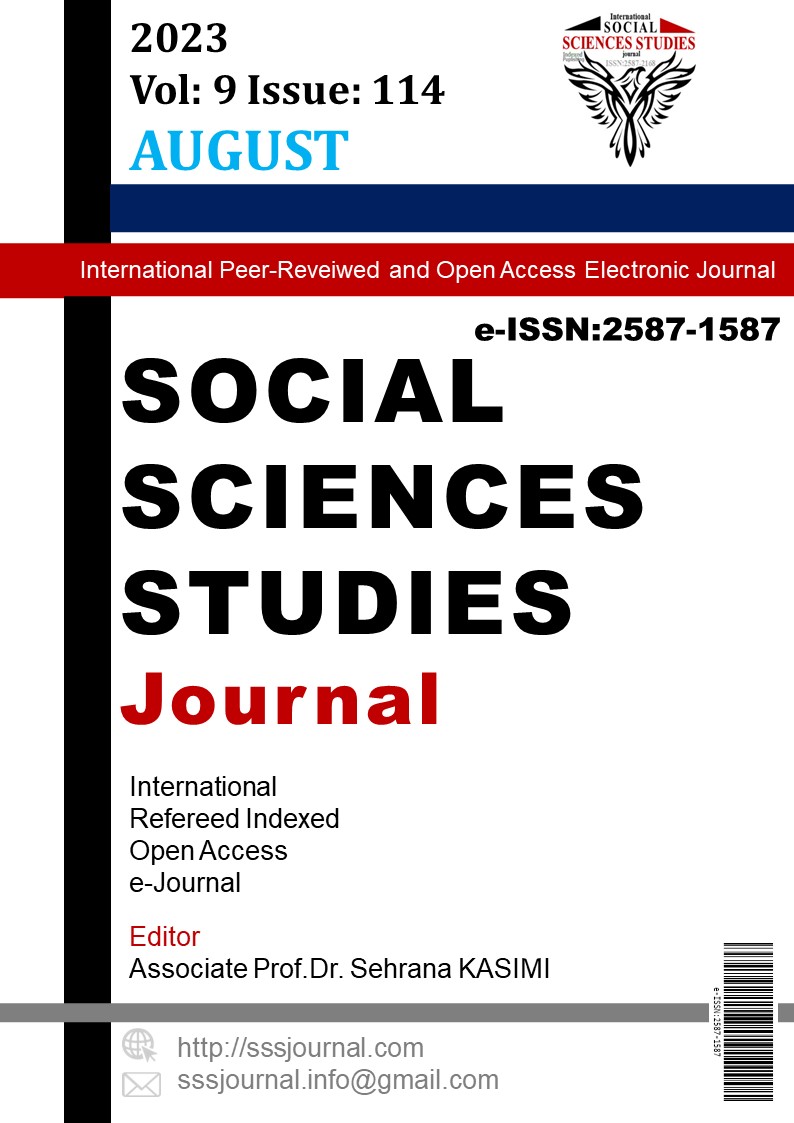Düz Anlam ve Yan Anlamın Göstergebilimsel Analizi: Robert Frost'un “Alınmayan Yol” Şiiri Üzerine Bir İnceleme
Author :
Abstract
“Alınmayan Yol” şiiri, yazarın kişisel deneyimini ve evren algısını araştırıyor. Şair, şiirde yan anlam, yan anlam ve mit anlamlarını kullanarak duyguları ve tasavvuru kurar. Bu araştırma kelimelerdeki yan anlam, çağrışım ve mit anlamlarını incelemektedir. Hedef okuyucu kitlesi için ima edilen ve gizlenen anlamı anlamak ve yorumlamak için yan anlam ve çağrışım gereklidir. Araştırmacı, şiirdeki çağrışım, yan anlam ve mit anlamlarını ve bunların biricik ve gizli anlamlarını ortaya çıkarmaya çalışır. Edebiyat, yaratıcı olguya dayanır. Araştırmacı göstergebilimsel bir bakış açısıyla şiirde var olan ima edilen anlamı, özellikle düzanlamsal, yananlamsal ve mitsel anlamı araştırır. .Buradan hareketle bu çalışma, Robert Frost'un Yol Alınmaz adlı şiirinden seçilmiş kelimelerin amaçlanan anlamlarını ele almaktadır. Bu şiir, Roland Barthes'ın (1957) göstergebilimsel gösterge kuramı kullanılarak betimsel olarak incelenmiştir. Bu durumda, bu çalışma Robert Frost'un seçilmiş şiiri “Alınmayan Yol” üzerine göstergebilimsel çözümlemeye odaklanmaktadır. Bu çalışmada şiirde yer alan yan anlam ve yan anlamlar çözümlenmeye çalışılmıştır. Bu anlamda bu çalışma, Rober Frost'un şiirindeki sözcük ve tamlamaların düzanlam ve çağrışım anlamlarıyla nasıl ilişkili olduğunu inceleyerek Barthes'ın kuramında miti incelemeye çalışmaktadır. Bu çalışma betimsel nitel yönteme dayanmaktadır. Bu çalışma, seçilen şiirde kelimelerin sadece gönderen değil çağrışım yapan da olduğunu ortaya koymaktadır. Buradan hareketle bu çalışma, şiirin sembolik çağrışımları yansıttığı sonucuna varmaktadır. Bu çalışma, bu şiirdeki kelimelerin çoğunun gizli anlamlara sahip olduğunu göstermektedir.Şiirde yer alan çağrışım sözcükler, insan yaşamının, insan bilincinin, insan koşullarının, insanın evrendeki kaderinin bir yönünü yansıtır. Bu çalışma seçilen şiirde Yan Anlamın Düz Anlamdan daha baskın olduğunu ortaya koymaktadır.
Keywords
Abstract
The poem “The Road Not Taken” explores personal experience and perception of universe by the author. The poet establishes emotions and imagination by using connotative, denotative and myth meaing in the poem. This research examines denotative, connotative and myth meaning in words. In order to understand and interpret implied and hidden meaning denotation and connatation are needed for target readership. The researcher tries to reveal connotative, denotative and myth meanings and their unique and hidden meaning in the poem.
Literature is based on creative phenomenon. From a semiotic point of view, the researcher investigates the implied meaning that exists in poem, particularly the denotative, connotative and mythical meaning. Based on this, this study deals with intended meaning of words that are taken from Robert Frost’s selected poem the Road not taken. Tha poem is investigated descriptively by using Roland Barthes’ (1957) semiotic theory of signs. In this case, this study focuses on semiotic analysis on Robert Frost’s selected poem “The Road not Taken”. This study trıes to analyze the denotative and connotative meanings included in the poem. In this sense, this study tries to investigate myth in Barthes’ theory by analyzing how the words and phrases to Rober Frost’s peoem relate to the denotation and connotation meanings. This study is based on descriptive qualitative method. This work reveals that words not only have denotation but also connotation in the selected poem. Based on this, this study concludes that the poem reflects symbolic connotations. This study suggests that majority of the words in this poem have hidden meaning. The connotative words included in the poem reflect aspect of human life, human consciousness, human circumstances, humans’ destiny in universe. This study reveals that Connotative meaning is more dominant than denotative meaning in the selected poem.
